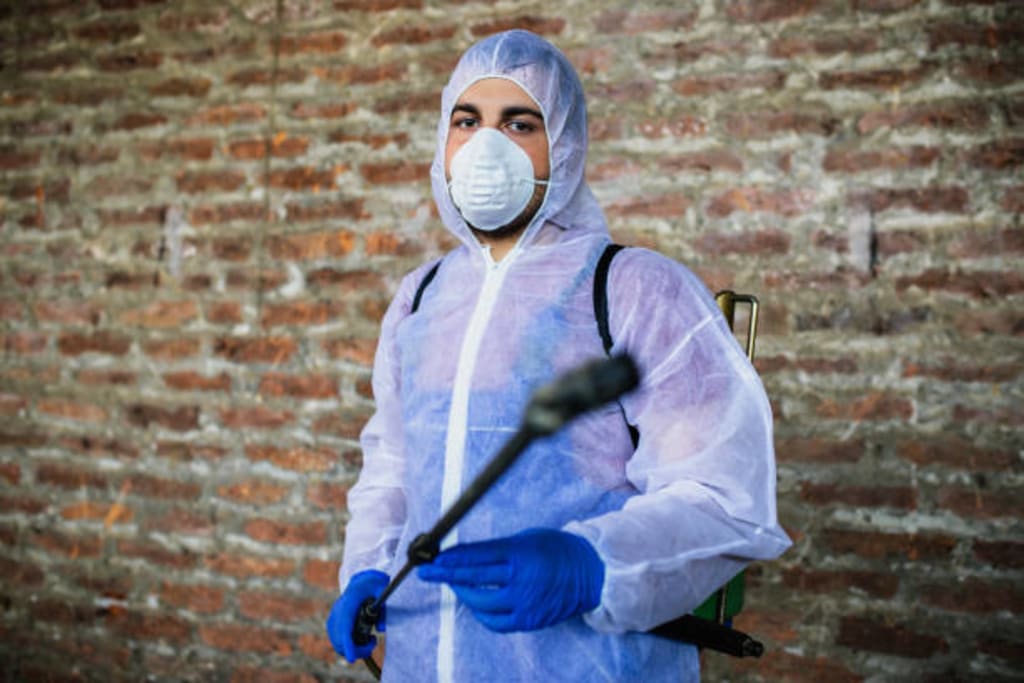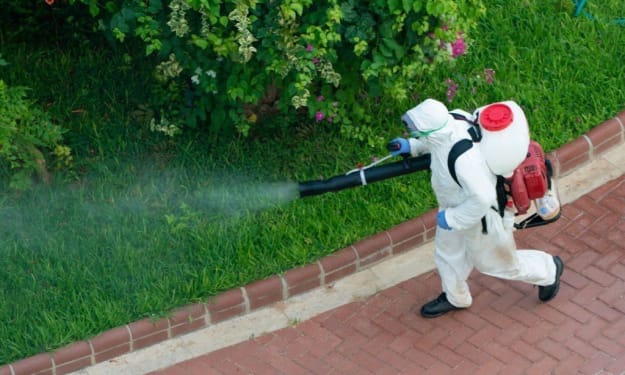
Are you tired of pesky ants crawling all over your kitchen counter and roaches scurrying across your floors? Do you dread the thought of hiring expensive pest control services to get rid of them? Well, fret no more! In this DIY pest control guide, we'll show you how to make your own safe and effective pesticides using simple ingredients found in your pantry. Say goodbye to those unwanted guests and hello to a clean, pest-free home! Let's dive right in.
Different Types of Pests
Pests are a nuisance, and they come in different shapes and sizes. Some pests like ants, roaches, flies, and mosquitoes can be found anywhere around the world; others like termites thrive in specific regions.
Ants are social insects that live in large colonies. They enter homes searching for food or water. Roaches are nocturnal insects that love warm and moist environments such as kitchens or bathrooms. These pests can spread diseases through their feces and contaminate food sources.
Flies breed quickly, making them difficult to control once an infestation takes hold. Mosquitoes carry deadly diseases such as malaria and dengue fever.
Termites feed on wood causing serious damage to homes if left unchecked while rodents like mice chew through electrical wires leading to potential fire hazards.
Insects such as bed bugs hide during the day within furniture cracks or seams of mattresses before coming out at night to feed on blood from humans or animals.
It is important to identify the type of pest you're dealing with so that you can choose the appropriate method of control.
How to Make Your Own Pesticide
When it comes to pest control in Maida Vale, most people think they have to rely on harsh chemicals and expensive products. However, making your own pesticide can be a cost-effective and eco-friendly way to get rid of pests.
Firstly, research the type of pest you are dealing with to determine which ingredients will work best. For example, ants can be repelled by a mixture of vinegar and water, while roaches may require boric acid mixed with sugar.
Once you have determined the right ingredients for your specific pest problem, mix them together in a spray bottle or container. Be sure to label the container clearly so that there is no confusion about its contents.
When applying your homemade pesticide, use caution and follow any safety instructions carefully. Keep pets and children away from treated areas until the solution has dried completely.
By making your own pesticides at home, you not only save money but also reduce exposure to harmful chemicals found in many commercial products. Give it a try next time you're faced with an insect invasion!
The Best Way to Get Rid of Pests
The best way to get rid of pests is by using a combination of methods. One effective method is to use bait stations that contain poison or other attractants that will lure the pests in. This can be especially useful for ants and roaches.
Another method is to use insecticides, which are available in both spray and powder form. These can be applied directly onto surfaces where the pests are likely to travel, such as along baseboards or around door frames.
It's important to remember that some pests may require more specialized treatments than others. For instance, bed bugs often require professional extermination services due to their persistence and resistance to many common household pesticides.
In addition, it's crucial to take steps towards preventing future infestations through proper sanitation practices and sealing off any entry points into your home. This includes regularly cleaning up food crumbs and spills, storing food properly in sealed containers, and repairing any holes or cracks in walls or windows.
Ultimately, getting rid of pests requires a multi-faceted approach that addresses both current infestations and preventative measures for the future.
How to Prevent Pests from Coming Back
Preventing pests from coming back is just as important as getting rid of them in the first place. Here are some tips on how to prevent a pest infestation from happening again.
Firstly, make sure you keep your home clean and tidy. Pests love cluttered areas where they can hide and breed. Regularly vacuuming floors, wiping down surfaces, and taking out the trash can go a long way in preventing pests from making themselves at home.
Secondly, seal up any cracks or openings around your home that could be potential entry points for pests. This includes gaps around pipes, windows, doors, and vents. Not only will this prevent pests from entering your home but it will also help with insulation and energy efficiency.
Thirdly, store food properly by keeping it sealed in containers or in the fridge/freezer. Leaving food out on counters or open containers is an invitation for pests to come feast.
Consider investing in regular pest control maintenance to ensure that any potential problems are spotted before they become full-blown infestations.
By following these simple steps you should be able to Remove Dead Animal Perth pesky pests from returning to your home!
Conclusion
DIY pest control can be a cost-effective and safe way to get rid of common household pests. By making your own pesticide with natural ingredients, you can avoid harsh chemicals that may harm your family or pets. However, it's important to remember that prevention is key in controlling pests in the long term. Always keep your home clean and tidy, seal any gaps or cracks where pests could enter, and eliminate standing water sources around your property. With these practices in place and by using the tips outlined in this article, you should be able to effectively manage any pest problems that arise.





Comments
There are no comments for this story
Be the first to respond and start the conversation.